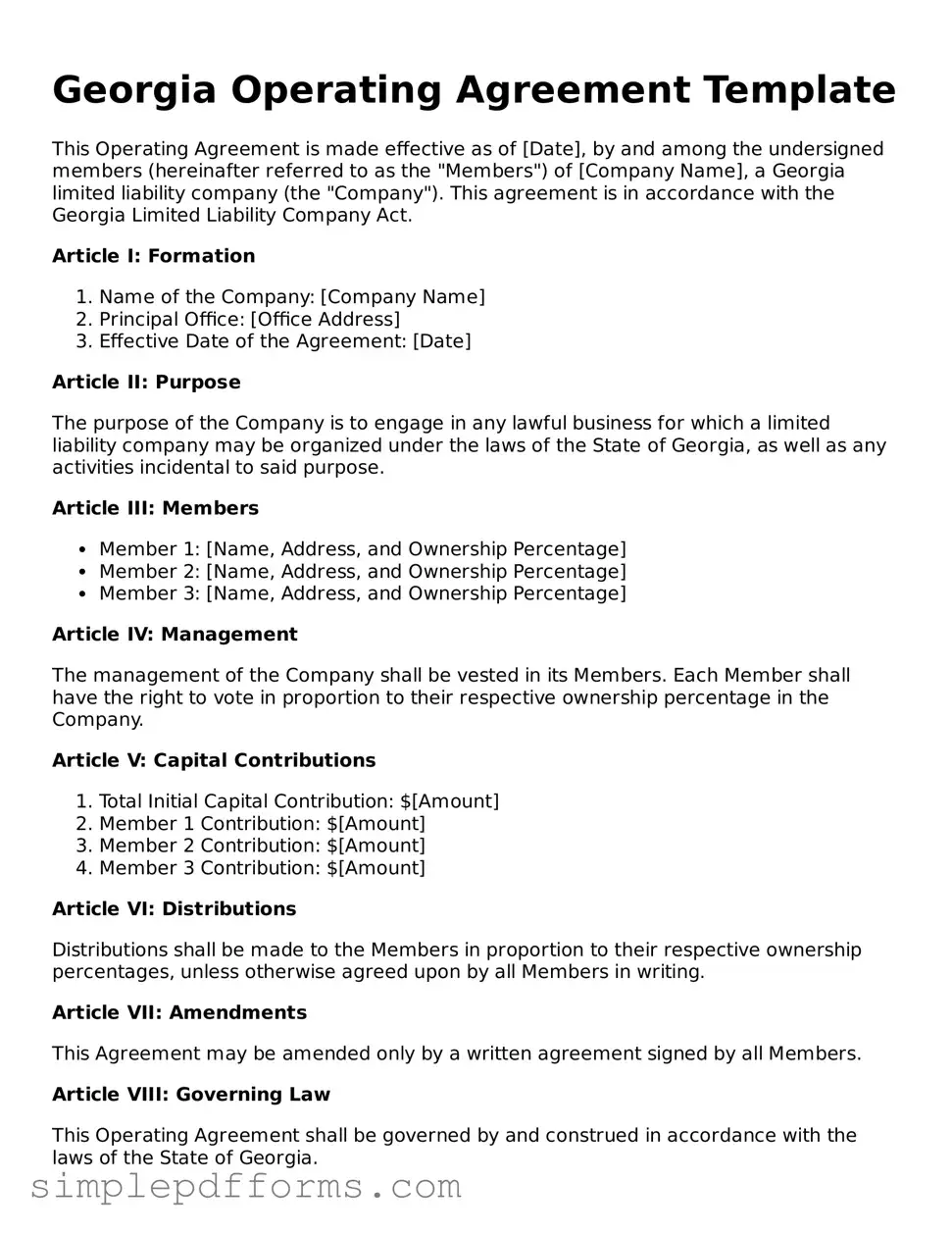Attorney-Verified Operating Agreement Document for Georgia State
The Georgia Operating Agreement form is a crucial document that outlines the management structure and operating procedures of a limited liability company (LLC) in Georgia. This agreement serves as a foundational blueprint, detailing the rights and responsibilities of its members. By establishing clear guidelines, it helps prevent misunderstandings and fosters a cooperative environment among all parties involved.
Open Operating Agreement Editor Now

Attorney-Verified Operating Agreement Document for Georgia State
Open Operating Agreement Editor Now

Open Operating Agreement Editor Now
or
Get Operating Agreement PDF Form
Your form is waiting for completion
Complete Operating Agreement online in minutes with ease.